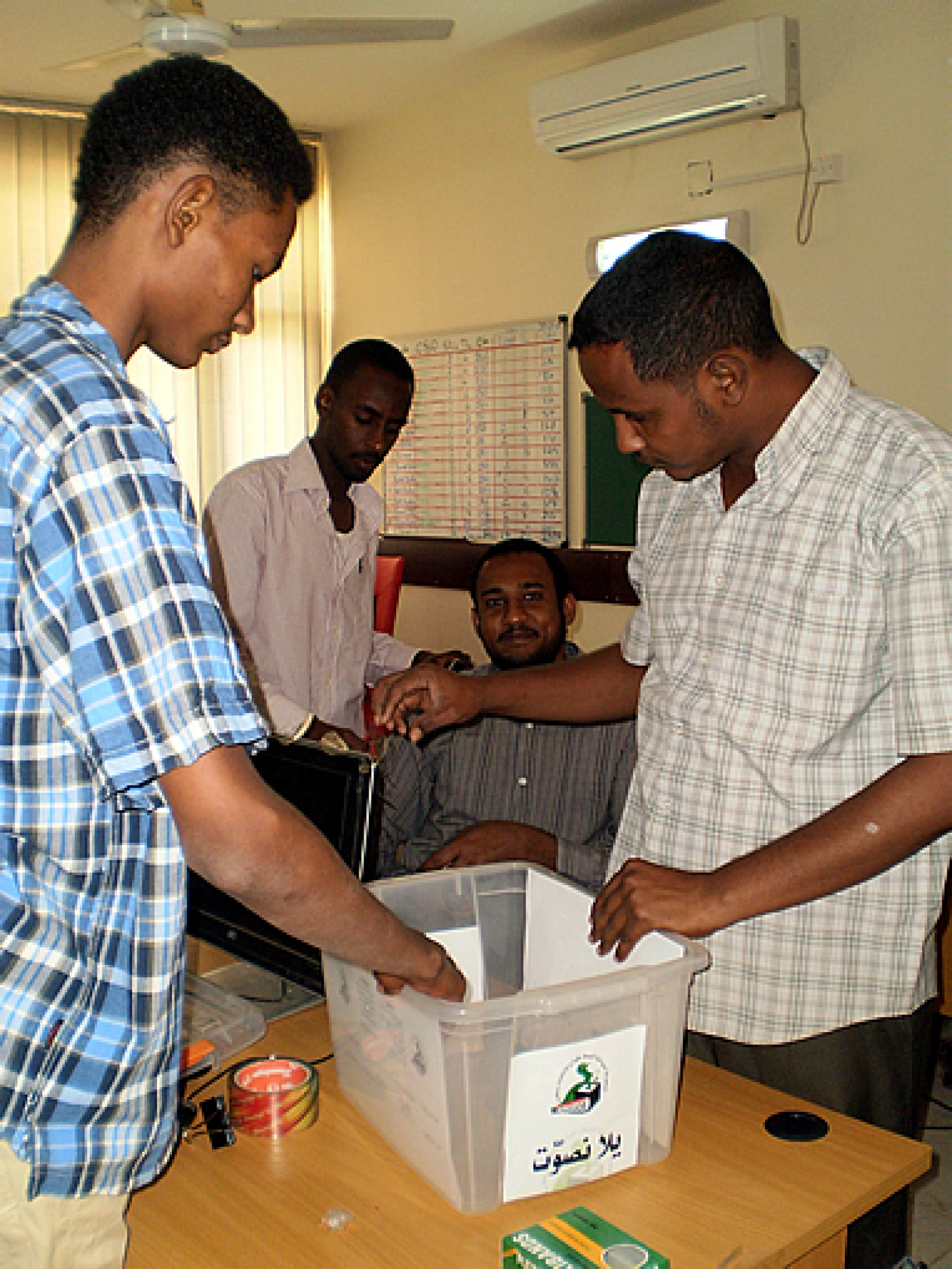
SHARE
For the first time in 24 years, Sudanese citizens will have the opportunity to cast ballots for a democratically-elected government in multi-party elections. For many Sudanese, the April 11-13 vote also will be their first time going to the polls.
To help encourage transparency and civic participation, civil society organizations (CSOs) will observe and report on the conduct of the polling process. Two newly-formed domestic observation networks, the Sudanese Group for Democracy and Elections (SuGDE) and the Sudanese Network for Democratic Elections (SuNDE), will observe all phases of the election day process, including polling station openings, voting, station closings and counting, in every state of Sudan, including Darfur and the Three Areas. This will provide the only nationwide point of view from the civil society perspective.
SuGDE was formed last December when eight nonpartisan CSOs came together with a commitment to educate voters and observe the election in northern Sudan. Together, the groups' networks extend across all 15 states in the north, which will allow them to observe the voting process throughout the region. SuGDE's counterpart in southern Sudan, SuNDE, was formed earlier in the year, when a nonpartisan coalition of over 75 CSOs came together to promote voter and civic education and observe voter registration and the elections. SuNDE's member CSOs cover all 10 states in southern Sudan.
The SuGDE and SuNDE networks have committed to working collaboratively by approving common observation methodologies and jointly developing polling and counting checklists. Together, the networks are training over 5,000 observers who will spread out across the country and observe the week-long elections process. They will be looking for proper implementation of National Election Commission voting and counting procedures and determining whether the process is fair and executed in a competent manner for all registered voters. The NEC has declared that there will be three days of voting and four days of counting. Citizens in the north of Sudan will cast eight ballots and those in the south will cast 12, including for president of Sudan, president of Southern Sudan, state governors, legislators, and other local officials.
Using stationary observers and checklists to standardize information and facilitate data entry and analysis, SuGDE and SuNDE will determine whether votes were cast according to regulations, votes were counted in accordance with the NEC procedures, and the vote was conducted in an environment largely free from intimidation. SuGDE and SuNDE observers will monitor a single polling station over the week. They will report their findings and critical incidents back to data centers in Khartoum and Juba, where the information will be recorded. SuGDE and SuNDE will use this data to make a formal pronouncement about what both groups observed during the elections — what went well and areas that need improvement for future polls. The SuGDE-SuNDE effort will be the first nationwide domestic election observation.
SuNDE's work on elections issues began last September when member CSOs began voter education activities, specifically around the registration process. CSOs took basic registration and voter information to public events and met with local chiefs to ensure that voter information was getting to the public. In November, SuNDE observed the registration process and reported it was conducted in a peaceful and transparent manner, though some shortcomings, such as the temporary closing of some registration stations due to lack of materials and poorly-trained officials, lessened the effectiveness of the exercise. Both SuNDE and SuGDE have conducted voter education campaigns in the lead-up to the elections. NDI provides technical assistance and financial support for these efforts.
The April elections are an historic moment for the Sudanese. A component of the Comprehensive Peace Agreement signed on Jan. 9, 2005, this election denotes one of the last steps to the completion of this agreement. The election also represents the first opportunity since the signing of the CPA, that all Sudanese will have the opportunity to elect their country's leadership.
Read more:
- Local coalition group educates voters in Southern Sudan»
- "Imagining the Election," NDI report explores attitudes about 2010 Sudan vote»
Pictured above: Members of SuGDE in the process of preparing for 2,500 election day observers to receive accreditation.
Published March 25, 2010


